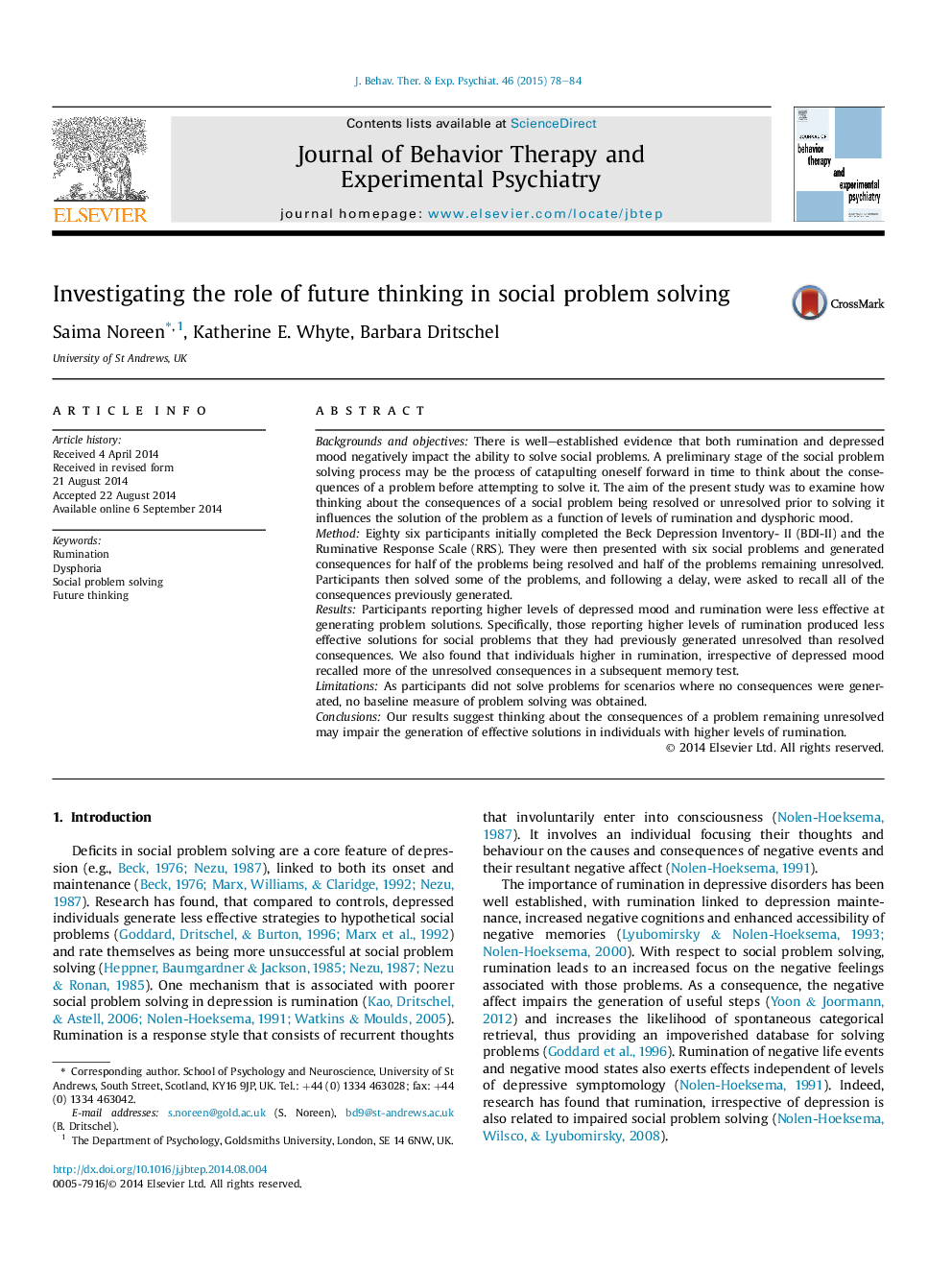| کد مقاله | کد نشریه | سال انتشار | مقاله انگلیسی | نسخه تمام متن |
|---|---|---|---|---|
| 910346 | 1473069 | 2015 | 7 صفحه PDF | دانلود رایگان |
• Thinking about unresolved consequences impairs SPS in rumination.
• High rumination is associated with superior memory for unresolved consequences.
• Inhibition may be one mechanism that underlies difficulties in SPS.
Backgrounds and objectivesThere is well–established evidence that both rumination and depressed mood negatively impact the ability to solve social problems. A preliminary stage of the social problem solving process may be the process of catapulting oneself forward in time to think about the consequences of a problem before attempting to solve it. The aim of the present study was to examine how thinking about the consequences of a social problem being resolved or unresolved prior to solving it influences the solution of the problem as a function of levels of rumination and dysphoric mood.MethodEighty six participants initially completed the Beck Depression Inventory- II (BDI-II) and the Ruminative Response Scale (RRS). They were then presented with six social problems and generated consequences for half of the problems being resolved and half of the problems remaining unresolved. Participants then solved some of the problems, and following a delay, were asked to recall all of the consequences previously generated.ResultsParticipants reporting higher levels of depressed mood and rumination were less effective at generating problem solutions. Specifically, those reporting higher levels of rumination produced less effective solutions for social problems that they had previously generated unresolved than resolved consequences. We also found that individuals higher in rumination, irrespective of depressed mood recalled more of the unresolved consequences in a subsequent memory test.LimitationsAs participants did not solve problems for scenarios where no consequences were generated, no baseline measure of problem solving was obtained.ConclusionsOur results suggest thinking about the consequences of a problem remaining unresolved may impair the generation of effective solutions in individuals with higher levels of rumination.
Journal: Journal of Behavior Therapy and Experimental Psychiatry - Volume 46, March 2015, Pages 78–84
